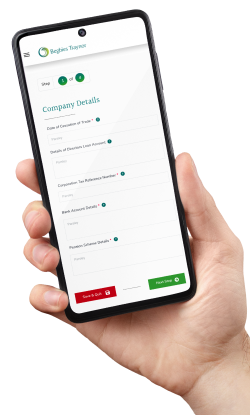When a company enters insolvent liquidation, whether voluntarily or forcibly by a creditor, the office-holder realises all assets with a view to repaying creditors, but the company’s pension scheme isn’t included in these assets.
Pensions are offered protection in the event of a company’s liquidation and if you worked for the company as an employee as well as being a director, your pension may be safeguarded by legislation.
So what type of workplace pension scheme did you run?
Concerned about the National Insurance increase?
For the 2024-25 tax year, the rate of employer National Insurance increases from 13.8% to 15% adding yet more pressure onto already squeezed cash flows. If you are worried about the impact this could have on your company’s finances, talk to the experts at UK Liquidators. As licensed insolvency practitioners we can explain your options and help you plot a way forward. Call today on 0800 063 9262.
Defined contribution schemes, also known as money purchase schemes, are commonly used in the workplace. With this type of pension, member benefits at retirement depend on the scheme’s performance over time, the level of contributions overall, and the charges made.
No financial risk is taken on by the employer in this instance, as the scheme is not directly associated with the company.
Liquidation Portal
For Company Directors

When a company providing this type of workplace pension enters liquidation there’s no direct impact on the pension scheme as a whole and individual pension funds, as the scheme is administered outside of the company and is not directly connected.
In some cases a company approaching insolvency may fail to send contributions to the pension scheme because of their financial position, but employees can make a claim for unpaid contributions from the National Insurance Fund (NIF) on being made redundant.
Start your online liquidation today
If you have decided liquidation is the right option for your limited company, you can take the first step and begin the process online using our online portal. Starting the process is quick, simple, and can be done at a time that suits you. Your information will be submitted to your local UK Liquidators insolvency practitioner who will be with you every step of the way. Click here to start your company’s liquidation online.
Also known as a final salary scheme, a defined benefit pension provides an income for life and members receive a fixed sum each month on retirement. The scheme doesn’t rely on the underlying investments’ performance, as is the case with a defined contribution scheme.
Defined benefit schemes are relatively rare these days given their cost to run, and the fact that the employer takes on a high financial risk. The final payments are calculated using each employee’s length of service, their final salary, and the age when they retire.
If your company runs this type of pension scheme and it can’t meet its pension obligations to current and former employees, the Pension Protection Fund (PPF) is there as a safeguard. The PPF receives regular contributions from companies that run these types of pension.
In the event of a company’s liquidation it covers pension payments in full for former employees who have already retired, and up to 90% of the value of the pension for yourself and other employees who are yet to retire.
Workplace pensions are complex, and may be subject to rules laid down within each scheme. This is why it’s important to seek specialist advice if your company is experiencing financial distress.
UK Liquidators can provide the professional guidance and support you need at this worrying time. Please contact one of the team to arrange a free same-day consultation – we operate an extensive network of offices around the UK, so you’re never far away from professional help.
By completing the test, you will receive:
If you are considering liquidation for your company, taking expert advice at an early stage is crucial. At UK Liquidators, our team of licensed insolvency practitioners are committed to providing limited company directors with the help and advice they need to make an informed decision.




Looking for immediate support?
Complete the below to get in touch